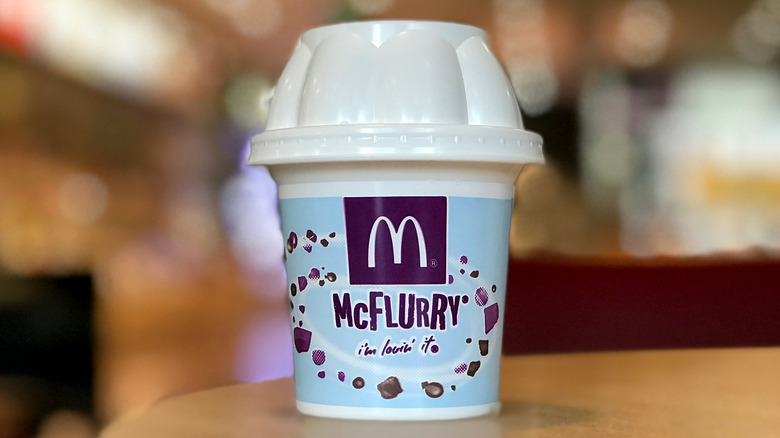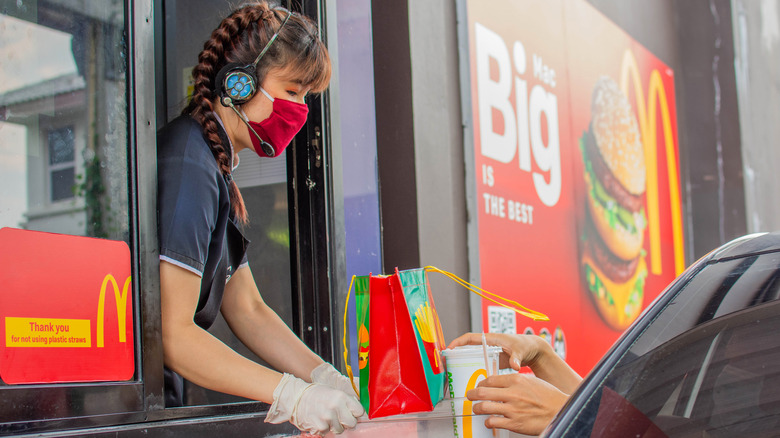How McDonald's McFlurrys Led To A Restraining Order
The machines instrumental in making the McFlurry may not be broken as often. Until recently, Taylor — the manufacturer of the McFlurry machines — had a monopoly on the repair of the notoriously unreliable equipment. Now they've received a restraining order from Kytch, a company that was formed to create devices that allow McDonald's locations to fix their own machines.
According to a report by Vice, court documents claimed that Taylor had acquired a Kytch Solutions Device in order to learn how it works, replicate its machinations, and scare McDonald's owners with claims that the devices were dangerous. Now Taylor has to return the device, and has been ordered by the court to not use any information they may have learned from their investigation.
With this ruling, the court has effectively stopped Taylor's attempt to maintain its monopoly. As any fan of the McFlurry knows, the ice cream machines they sell to McDonald's break constantly. However, it used to be that only Taylor-certified technicians could repair the machines, which often takes weeks to happen and, of course, costs the high amounts a monopoly can charge. With Kytch, owners of McDonald's franchises have the chance to fix the machines themselves in a timely manner. It should be stressed also that the franchisees own their McFlurry machines, meaning that Kytch is simply allowing them to fix their own equipment. Commenting on the case, Kytch co-founder Melissa Nelson told Motherboard, "Our case makes clear that it's past time to end shady business practices that create hundreds of millions of dollars of unnecessary repair fees from 'certified' technicians." It's good news for the individual McDonald's locations ... but the corporate office feels differently.
McDonald's is in on it too
When WIRED first broke the story of Taylor's shady business practices and Kytch's entrepreneurial response, they described the scenario as a Cold War with McDonald's and Taylor on one side and Kytch on the other. "There's the ice cream machine, and then there's the machine behind the machine," said Jeremy O'Sullivan, the co-founder of Kytch.
In their franchise agreements, McDonald's has the power to force all their franchisees to buy Taylor's ice cream machines and grills. And the corporate organization owns the very land on which each restaurant rests, and can withdraw the lease at will. As one of the biggest franchises in the world, you'd think that McDonald's has the power to resist shady suppliers, if they saw fit. But according to O'Sullivan, the chain benefits from the monopoly arrangement by taking a cut of the profit from the repairs of the machines. So you can imagine what their response has been. Apparently, McDonald's went out of their way to threateningly warn their franchisees to not use Kytch devices, saying not only that they violate Taylor's warranties, but alleging that they can cause "serious human injury."
So, while Taylor has received a slap on the wrist for trying to muscle off a genuinely helpful device, we still have to see if McDonald's changes its stance toward burdening its franchisees with costly, inefficient machines.

